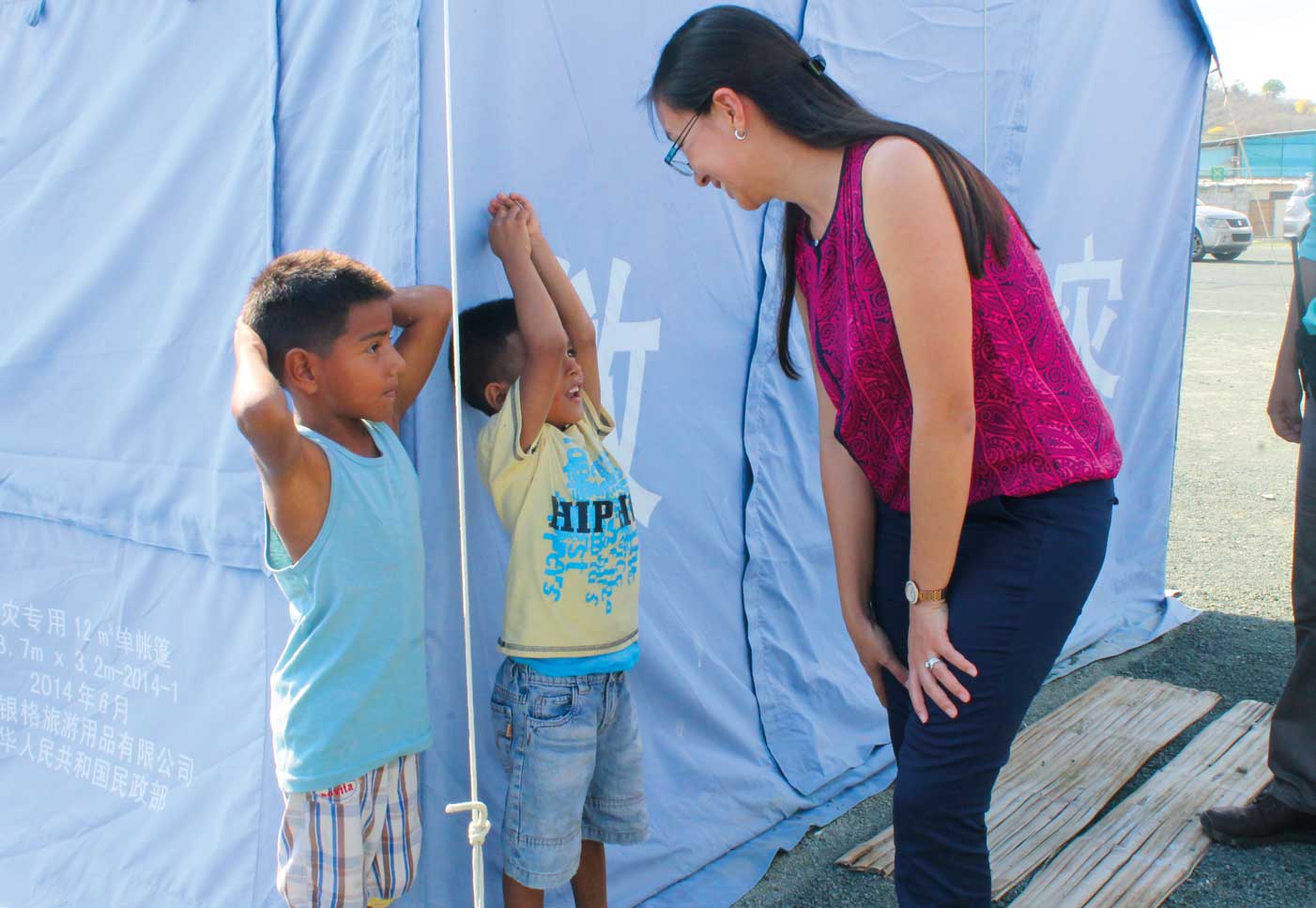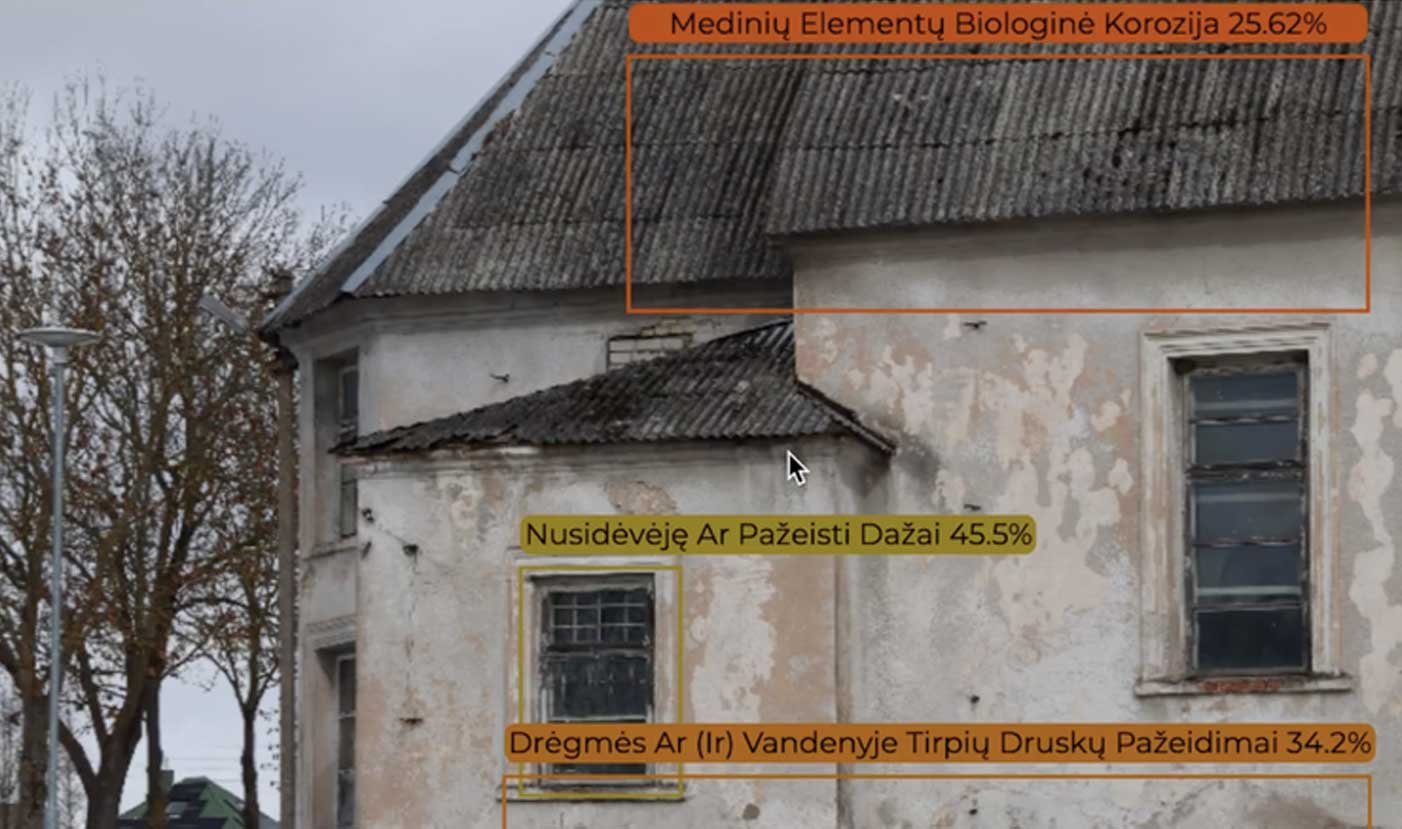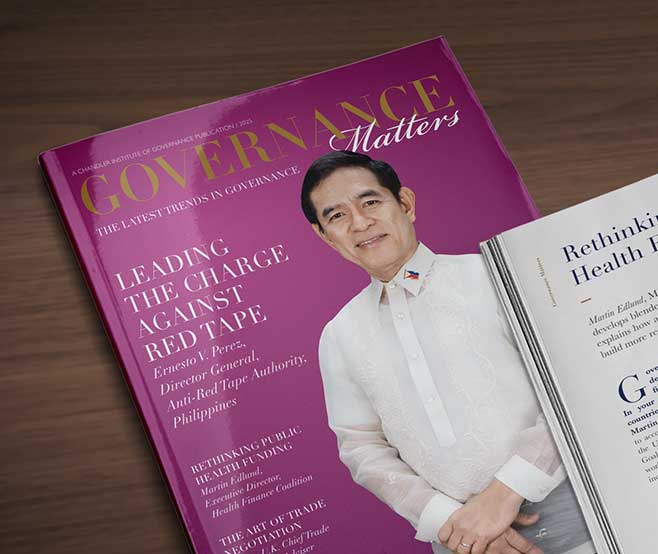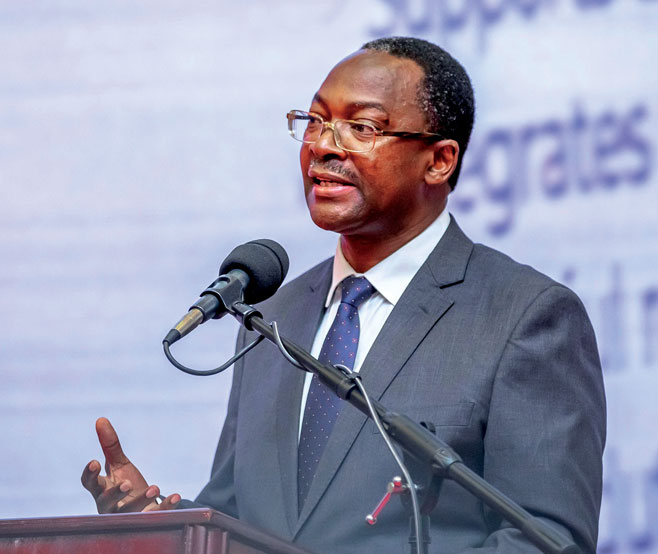Helping People Lead Better Lives
Sandra Naranjo Bautista, former Acting Vice-President of Ecuador, shares lessons from her time in office.
Lorem ipsum dolor sit amet, consectetur adipiscing elit, sed do eiusmod tempor incididunt ut labore et dolore magna aliqua. Ut enim ad minim veniam, quis nostrud exercitation ullamco laboris nisi ut aliquip ex ea commodo consequat. Duis aute irure dolor in reprehenderit in voluptate velit esse cillum dolore eu fugiat nulla pariatur.
Heading 1
Heading 2
Heading 3
Heading 4
Heading 5
Heading 6
Lorem ipsum dolor sit amet, consectetur adipiscing elit, sed do eiusmod tempor incididunt ut labore et dolore magna aliqua. Ut enim ad minim veniam, quis nostrud exercitation ullamco laboris nisi ut aliquip ex ea commodo consequat. Duis aute irure dolor in reprehenderit in voluptate velit esse cillum dolore eu fugiat nulla pariatur.
Block quote
Heading 6
Ordered list
- Item 1
- Item 2
- Item 3
Unordered list
- Item A
- Item B
- Item C
Bold text
Emphasis
Superscript
Subscript
Governance Matters: When you became a minister, you were younger than the median age of ministers in the world. Interestingly, we are also seeing more younger people being elected or appointed to ministerial and key government positions around the world. What do you think of this growing trend and what advice do you have for your peers who have assumed the reins of national leadership at a relative younger age?
Sandra Naranjo Bautista: I think that it’s excellent this is happening because it reflects how our population has been changing. This segment of the population should be represented, and I think that being from that segment allows for better understanding of current issues, especially in a world that changes so rapidly. I also feel that there are some advantages that come with being young, in the sense that you perhaps are more willing to take risks and innovate, and can bring new or fresh ideas to the table.
That said, while I believe that it is good and refreshing to have younger people in government, I do think that there are some things that come only with experience, so finding the right equilibrium between the two is very important.
Leaders are only as good as their teams. And the best thing you can do when you are a leader, regardless of your age, is to find a team that complements you with different skill sets from the ones that you have. I found that while I was young, and perhaps had the drive to get things done, it was very useful to have a group of more experienced people around me, that had worked in public service longer and were able to offer their perspectives and wisdom.
In your experience, what should a minister’s first 100 days look like? What can a minister do to get up to speed with a new portfolio?
This is an interesting question because I have a slightly different view when it comes to milestones such as 100 days. When you’re a minister, you know for sure the day you start work, but you never know when your last day will be. So, I think it’s important to just put that in perspective.
I believe that one of the first things you should prioritise when you are starting at an institution is to understand the organisation and make an effort to speak to the people who work there. Because while you are new, the institution is not, and there are people who have been working there for many years, and projects that are ongoing.
Every time I started a new position as a minister, I would meet with everyone in a town hall of sorts, just to introduce myself, and share who I was and what was important to me. For example, it was very important to me, personally, to make a point about corruption and how that was a line that should never be crossed. I was very clear that no matter who uses my ‘name’, that I would never give the instruction to give a contract to anyone. Likewise, I wanted to make it clear that I would not tolerate that sort of behaviour from the team.
I also believe that it is important to have a long-term vision that is shared with the rest of the organisation. Of course, not everything starts with you, but I think that it is important to lay out the priorities and have a plan for how to get there in the coming months or years. As a leader, your main role is to ensure that everyone is on the same page, so it is key to constantly reinforce the priorities.
Another thing I believe strongly in is keeping an open-door policy. I believe it is important that your team gives you frank and fearless advice, because the best way they can help you during a decision-making process is by telling you the truth. You need people to be honest with you, and not just tell you what you want to hear. And so with every team that I met for the first time, I would make it a point to take the time to listen to them and ask them about what they’re working on, their priorities, their issues, and concerns. This was very useful, because in these conversations a few key issues would always pop up, this allows you to map out the problems of the organisation and the people dynamics quickly.
I always tell the story of how I was in an initial meeting with the public investment management team and I asked them what they would do differently, or if they had any ideas about how we could improve. One particular guy offered some brilliant ideas. I asked him why they weren’t executed before and he answered that no one had ever asked them what they thought. This was shocking for me because so much knowledge and expertise were not being utilised simply because the ‘space to listen’ was not created.

In many countries, there is often tension or disagreement between politicians and political appointees on the one hand, and long-time civil servants on the other. You spoke about how you relate to them — via ground rules, drawing on their experience, and an open door policy. Can you share more about how the divide between the two can be bridged?
This is a really important issue and one that I’ve written about at Better Govs. I think it’s important to understand that we have different views and respond to different things. For example, civil servants tend to take a longer-term view because they have a career in the civil service.
Further, because of the type of work that they do, civil servants tend to focus more on technical and administrative issues. They are the ones with the institutional memory.
Conversely, politicians often take a shorter-term view of things because there is an awareness that their time in office is limited. Their thinking tends to revolve around: “What’s the next thing I’m going to do?” Politicians tend to weight political priorities and views more heavily than the technical and administrative aspects of things. So, just understanding how we see the world differently is the first step.
Another aspect that I think is important to overcoming conflicts is to have a clear realisation that even though you may have different views, you are all working towards the same goal, which is the good of the country. That’s the end goal. As a politician, you need an effective civil service, and civil servants need the empowerment and authority to get things done, so it’s really a symbiotic relationship. Once you have that clear, it tends to overshadow the differences and brings people together.
Countries often design good and well-intentioned policies and plans. However, the key is the ability to implement and execute these plans well. Can you share with us an example from your experience in political leadership where implementation really mattered?
Execution is everything. If you’re only thinking or even designing things, but not doing, then nothing happens. It doesn’t matter how brilliant your ideas are or how many past achievements your cabinet might have. Your only measure — and all that really matters — is the execution of your ideas.
I’ll give you a very tangible example. In April 2016, Ecuador experienced one of the biggest earthquakes the country had had in almost a century. It nearly destroyed one of the towns in a very poor and vulnerable area. The people that were affected were, perhaps, some of the poorest in the country. Some of them lost everything, including their homes, and the only way that they could move on from the temporary shelters that the government provided was if new houses were built for them.
The priority for the government was to finish building all these houses before the end of its term because we knew that when the transition of government came, there was going to be a natural stop in the process. We did not want these people to have to wait another year; people simply cannot live in temporary shelters. We built around 4,000 houses in a matter of months..
Effective implementation requires both the right system and the right culture. How can government leaders create a culture of implementation within the civil service?
I think it’s important to have the systems in place. I love this quote from James Clear: “You don’t rise to the level of your goals, you fall to the level of your systems.”
When you start delivering things and making things work, it is important to ensure that people know they have done well. When you show people that their efforts are valued, it generates an effect — like a virtuous cycle where good things keep happening.
For example, while visiting one of the housing construction sites in Ecuador, I met a man who was still living in his temporary shelter, a tent. He invited me to this tent and showed me the space he had managed to make for his bike. I then asked what would he do with his bike when he moved into his house, to which he replied: “I don’t know but I will find a special place for it.”
When he moved into his new home, he called me and invited me to see the “special place” he had chosen for the bike. It was a very special moment. I think that when you leave government, these are the things you take with you — the feeling that you get when you know you are doing something good for others. So, I think that is part of what creates the culture.

Changes in levels of resources may impact implementation in governments. Scarcity of resources has become more pronounced in some countries due to resources being channelled to mitigation and recovery from the pandemic. What’s a good way to think about how to respond in those situations?
Resources are scarce. Things change. Think about all the governments during the pandemic. Even if they thought at the start of 2020 that they had the year all figured out, suddenly the virus descended upon us and the whole world changed.
Things aren’t always as dramatic as COVID-19, but the point I want to make is that you always have to prepare for what is coming. In a situation where you are in the middle of the project, and you need to decide your next steps, I think an important concept is what economists call the marginal analysis. Ask the questions: “what is the marginal benefit of what you’re going to do” and “how does it compare to the marginal cost of what you’re doing” because at the end of the day, you’re going to have to make difficult decisions and choices.
You want to make sure that whatever resources you’re allocating — money, manpower, anything — they go to their most valuable use.
I think that marginal analysis is important in that it gives you a practical tool for prioritising and deciding how to allocate resources, and how or what to do next.

As a senior leader, it can be difficult keeping track of everything happening on the ground. Have you found effective ways to oversee and retain accountability of the various teams and people doing things under your charge?
Several things: first, I think the team that you have is very important as I mentioned earlier. You are only as good as your teammates. I used to meet with my undersecretaries, and define our priorities for the week, or the issues that were important. I would then ask them to do the same with their teams, who would then share that information with their own teams. I felt that this was an important step in keeping everyone on the same page because people can, and do, end up working in silos.
Another important thing to do, I think, is to be clear about your priorities because there will never be enough time to do everything. And when you work in the public sector, you know that the deadline for everything is ‘yesterday’ — you’re always in a fight with time. So I like to think of the Pareto efficiency rule: basically, you want to focus on where you get 80% of the results. To give you a practical example, when I was monitoring the budget, I could not personally review every spending item in every ministry. What I did was focus on 20% of the institutions that had 80% of the budget. That meant that if something was wrong with, say, the Ministry of Transport and Infrastructure, then I had a big issue because they were an important part of the budget. But if there was low execution with a minor entity, it didn’t mean that it wasn’t important, it’s just that the impact would be different.
One of the things we would do when I met with my team was to check in on our priorities because there are things that you want to do — and there are things that you must do. Everyone must be clear on what those tasks are and the deadlines. That’s how I like to think about monitoring. Think of a dashboard that tells you how things are and where to focus your energy. It’s not so much about “so-and-so didn’t do this”, or “this is not working”. It’s more of, “I have a problem here that I need to fix”. Then going back to this idea of allocating scarce resources, “how am I going to allocate the resources” to “how am I going to solve issues as I go”.
When thinking about execution, I firmly believe the details matter. If you’re the leader, you need to be in the details. Often, projects fail when people assume that someone else would do the work and they didn’t.
My dad believed in thinking about those who were worse off and what could be done to help them — that was the way I was raised, and I think it has inspired the work that I do.
From your answers, it is evident that you are very values-driven. Can you share some of your major influences growing up and how they shaped the way you see leadership and government.
When I first started working in government, I worked in the President’s office. I think I was in a unique position because I was a junior staff but I saw everything, and it was an opportunity to gain a good perspective on how things work.
One thing that I learned early on is that it’s very easy to confuse the position you’re in with who you are. I told myself, that if I ever was in a position of power, I didn’t want to confuse who I was with what I did. So yes, I was a minister, and now I’m the head of an organisation that I created. Sometimes you’re up, sometimes you’re down. But the essence of who you are, and how you treat people, should not and does not change with the role you are in. That’s what you take with you.
I came from a family where everything we had, was because of our hard work. But my parents and my grandparents, and in particular my grandfather on my dad’s side, would always ask: “How do we help others?” My dad always used to say that we will always find people who are better off, and others who are worse off than we are. He believed in thinking about those who were worse off and what could be done to help them — that was the way I was raised, and I think it has inspired the work that I do.
The President that I worked for also influenced me because I could see that he truly cared about what he was doing. When he made a decision, it was based on how it could better serve the citizens. One of the things he taught me is that when you are in a position of power, you have to learn to use that power for the benefit of the majority.
As I went into my career in the public sector, I realised that those of us who work in the public sector have a huge responsibility to our countries and to our people, and we don’t take that lightly. That’s why I think it’s important to talk to others in civil service who similarly believe in serving the greater good, because that is when you identify the power to do good things.

Heading 1
Heading 2
Heading 3
Heading 4
Heading 5
Heading 6
Lorem ipsum dolor sit amet, consectetur adipiscing elit, sed do eiusmod tempor incididunt ut labore et dolore magna aliqua. Ut enim ad minim veniam, quis nostrud exercitation ullamco laboris nisi ut aliquip ex ea commodo consequat. Duis aute irure dolor in reprehenderit in voluptate velit esse cillum dolore eu fugiat nulla pariatur.

Block quote
Ordered list
- Item 1
- Item 2
- Item 3
Unordered list
- Item A
- Item B
- Item C
Bold text
Emphasis
Superscript
Subscript
Lorem ipsum dolor sit amet, consectetur adipiscing elit, sed do eiusmod tempor incididunt ut labore et dolore magna aliqua. Ut enim ad minim veniam, quis nostrud exercitation ullamco laboris nisi ut aliquip ex ea commodo consequat. Duis aute irure dolor in reprehenderit in voluptate velit esse cillum dolore eu fugiat nulla pariatur.
Endnotes
- Item 1
- Item 2
- Item 3


Sandra Naranjo Bautista is a public policy expert, specialising in governance, policy design and implementation, and public financial management. She is the former acting Vice-President of Ecuador. She has also served as Minister of Planning and Development as well as Minister of Tourism. She has worked as a consultant for the World Bank, DFAT, the Gates Foundation and other organisations in Indonesia, Papua New Guinea, Timor-Leste, Peru and Mexico. Sandra is also the founder and CEO of Better Govs, an initiative focused on improving policy implementation in developing countries.
Lorem ipsum dolor sit amet, consectetur adipiscing elit, sed do eiusmod tempor incididunt ut labore et dolore magna aliqua. Ut enim ad minim veniam, quis nostrud exercitation ullamco laboris nisi ut aliquip ex ea commodo consequat. Duis aute irure dolor in reprehenderit in voluptate velit esse cillum dolore eu fugiat nulla pariatur.













